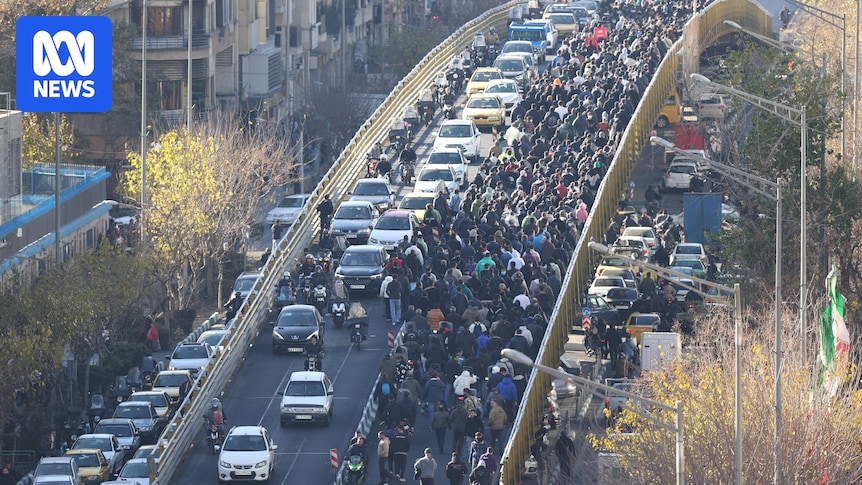1Community Medicine Department, Faculty of Medicine, Al-Saeeda University, Sanaa, Yemen; 2Community Health Nursing Department, Faculty of Nursing, Al-Baha University, Al-Baha, Saudi Arabia
Abstract: Hashimoto’s thyroiditis (HT) is a chronic…

1Community Medicine Department, Faculty of Medicine, Al-Saeeda University, Sanaa, Yemen; 2Community Health Nursing Department, Faculty of Nursing, Al-Baha University, Al-Baha, Saudi Arabia
Abstract: Hashimoto’s thyroiditis (HT) is a chronic…
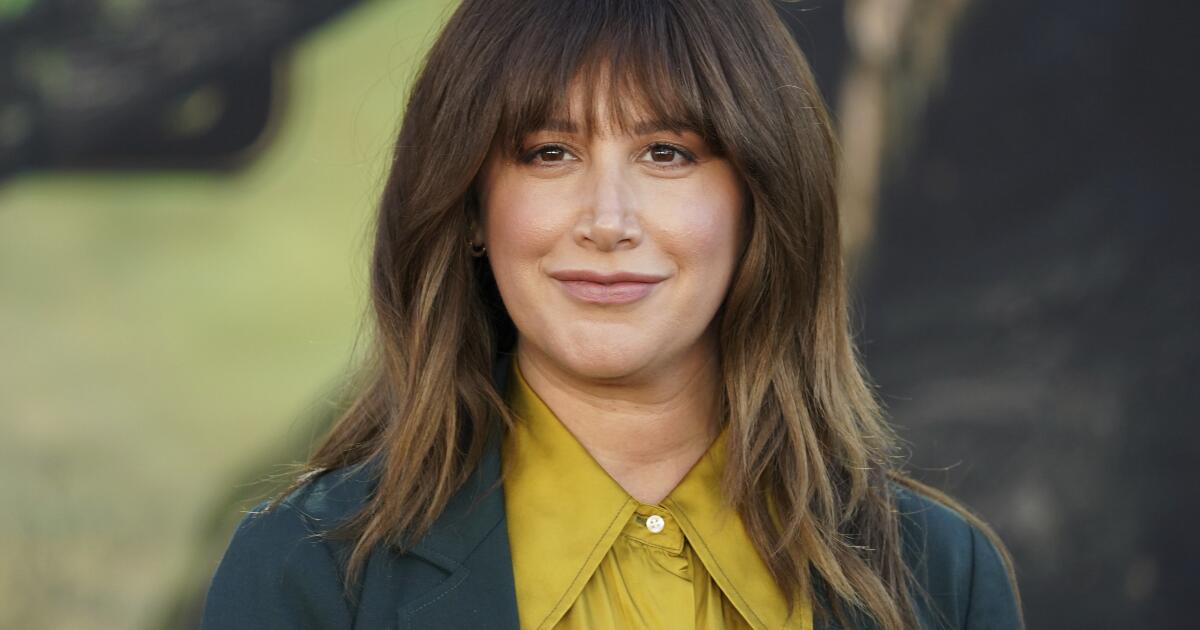
There are some things that make a person happy they’re not a millennial mom. Ashley Tisdale’s mommy group drama is one of those things.
Because Tisdale — now Ashley Tisdale French — sounds like she might be stuck in her own “High…
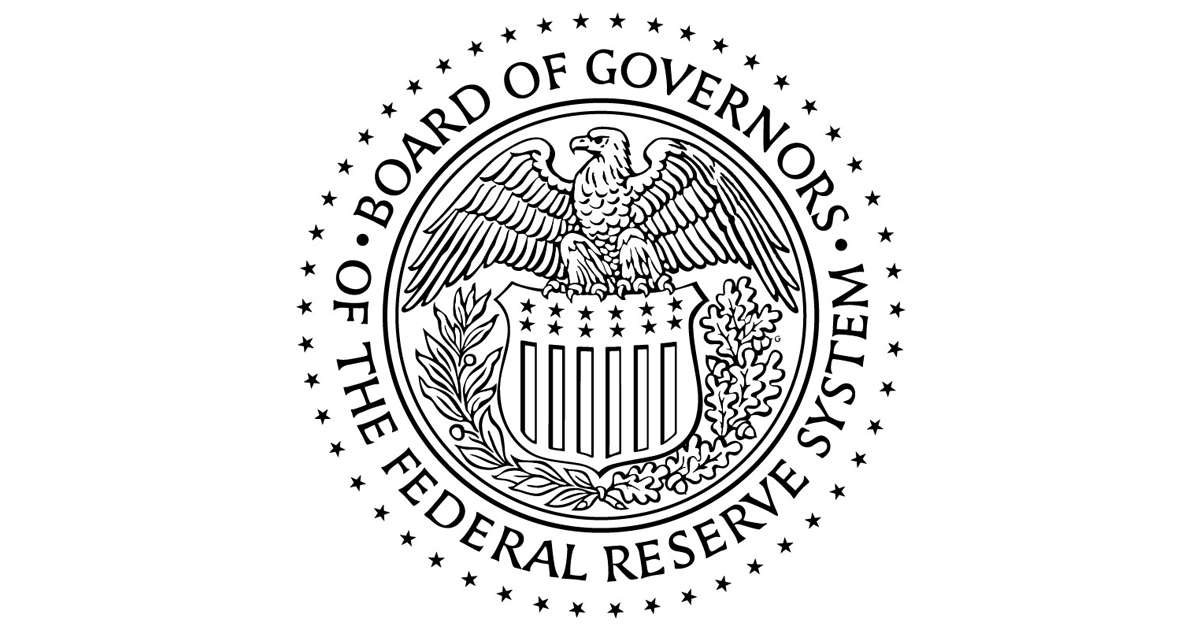
I would like to thank the California Bankers Association for the invitation to join you today.1 Throughout my now seven years as a member of the Federal Reserve Board, I have found that direct outreach with bankers has been the most effective way to learn about and understand your perspectives on improving the regulatory and supervisory frameworks, and on local banking and economic conditions.
It has now been seven months since I was appointed by President Trump as Vice Chair for Supervision. It is an incredible honor and a profound responsibility to serve in this role. Since I first joined the Board in November 2018, we have faced significant challenges in the banking system and in the economy. Serving on the Board during this time has provided a unique perspective about the banking system and specifically this role, including how to effectively carry out its important responsibilities and promote the safety and soundness of the banking system.
Over the past seven months, I have implemented a comprehensive approach to pragmatic supervision and regulation. As we work to preserve safety and soundness, we must ensure the U.S. banking system remains efficient, innovative, and accessible. This is especially important for the small and community banks that serve Americans across the country, including my hometown in Kansas.
Drawing from my own experience as a community banker and as the Kansas State Bank Commissioner, I have prioritized tailoring our approach to reflect the unique profiles of banks, refocusing our supervision on early detection and remediation of material financial risks and enhancing transparency in our processes. You know these risks well—they are the core risks that truly threaten the viability and safety and soundness of institutions and the stability of the broader financial system.
The past seven years as a Governor have also profoundly shaped my approach to this role. They provided an invaluable, front-row perspective on the evolution of supervisory policy, the internal deliberations of the Board, and the real-world impact of our decisions on banks of all sizes. I observed first-hand how certain regulatory and supervisory practices—which may be well-intended—can drift to focus on subjective, politicized, or tangential issues that divert our attention from the risks that materially impact safety and soundness and financial stability.
Leveraging these experiences allows me to explain not just what we are changing, but why—rooting reforms in observed outcomes rather than abstract theory. This approach bridges Washington policymaking with Main Street banking, ensuring that our supervisory and regulatory framework reflects lessons learned and prioritizes what truly matters for safety and soundness and financial stability.
Progress in Supervisory and Regulatory Modernization
Since June of last year, we have significantly advanced on the agenda I laid out in my Georgetown University speech.2 While we have made a great deal of progress in just a few months’ time, today, I would like to focus on a few of these priorities.
Beginning with properly targeted supervision. Supervision is a powerful instrument for promoting safety and soundness. It enables examiners to rigorously assess institutions and detect any material weaknesses requiring remediation. Every institution is distinct—with respect to its products and services, geographic presence, market position, and the specific risks it poses.
Supervision is one of our most valuable diagnostic tools. It requires a balanced approach, tough decisions, and reasoned judgement. What is the scope of the examination? Which risks should be prioritized? Are there new or emerging risks that require additional review? To be effective in promoting safety and soundness and U.S. financial stability, supervision must focus on the most important risks—which are the core and material financial risks.
In late October 2025, for the first time, the Federal Reserve published supervisory operating principles designed to enhance supervisory transparency and accountability and sharpen our examination processes.3 These principles direct supervisory staff to identify and require early remediation of material financial risks. The failure of Silicon Valley Bank (SVB) exposed critical flaws in our prior supervisory approach, which became an ever-expanding scope of unfocused activities that led examiners and the bank to overlook or downplay severe interest-rate and liquidity risks that triggered the bank’s collapse and eroded broader public confidence.
As I have said a number of times in the past, significant lessons remain from the SVB episode, and we are committed to identifying and rigorously addressing them.
Turning back to the operating principles, since their introduction, we have made significant progress in their implementation, including through question and answer sessions with leaders and staff throughout the Federal Reserve System, both at the Board and the Reserve Banks; providing illustrative examples to demonstrate how they should be applied in different circumstances, which we will add to over time; hosting conversations and answering questions from Supervision leaders and staff; and soliciting feedback from regulated firms. If we discover areas that should have been included but were not covered in the initial set of principles, or if we find that there is confusion or misunderstanding about how they should be applied we will refine our approach.
We have also made an important change to the LFI ratings framework that applies to the largest banks. The changes ensure that the “well-managed” status of a firm is reflective of its overall ratings and risk, rather than disproportionately weighting a single supervisory component to drive this overall assessment of the firm. While this is an important step, we recognize that there is more work to be done on bank ratings frameworks, which I will discuss shortly.
We have also eliminated the use of “reputational risk” in the supervisory process. In the past, this imprecise supervisory tool has been misused to prohibit politically disfavored activities. And in furtherance of our focus on core and material financial risks, we have rescinded the climate guidance that diverted supervisory resources away from risks that are material to the safety and soundness of banks. This guidance forced institutions to devote excessive resources to collecting climate-related data from customers and prospective customers, and to forecast business risks beyond any reasonable or reliable forecasting window, potentially decades into the future—all to address risks that banks are already required to manage. In short, these climate principles did little to further our statutory objectives to protect safety and soundness and financial stability.
Banking inherently involves risk. The regulatory framework aims not to eliminate risk, but to ensure the safe and sound management of risk. With proper prioritization, regulators and examiners can foster robust risk management while enabling banks to innovate, grow, and serve their customers, communities, and the broader U.S. economy.
Since the mortgage crisis more than 15 years ago, bank regulation has been implemented under an overly granular “more-is-better” approach that has driven significant banking activity out of the regulated system and into less-supervised corners of the financial landscape. This framework is long overdue for a comprehensive review. An unfocused, process-heavy approach to regulation and supervision leaves banks less able to support economic activity, displaces activity into unregulated sectors, and ultimately makes the overall financial system less safe and stable.
In recent months, we have introduced meaningful improvements, including publishing several proposals for public comment, and finalizing several critical reforms. We have proposed re-calibrating the community bank leverage ratio (CBLR) to the statutory minimum to provide greater flexibility to eligible community banks. This would change the required level of capital for community banks electing the CBLR from 9 percent to 8 percent, a level that is still nearly double the required Tier 1 leverage ratio and preserves a strong capital foundation for these firms. The CBLR allows a community bank to choose to meet a single leverage capital requirement instead of the risk-based measures designed for larger banks. In addition to meeting the statutory capital requirement, it enables more community banks to take advantage of the relief that Congress intended. We look forward to receiving comments and ultimately finalizing the proposed revisions.
We have also modified the enhanced supplementary leverage ratio (eSLR), returning it to its traditional role as a leverage-based backstop to risk-based capital requirements. In doing so, we are making real progress to enhance the stability of the U.S. Treasury market by enhancing intermediation capacity for large bank-affiliated broker-dealers. In addition, we are in the process of revising and enhancing the stress testing program to reduce year-over-year volatility, improve the reliability and accuracy of the models, and increase transparency. And in the coming days and weeks, the Board will announce additional regulatory changes to improve the fairness, transparency, and prioritization of the supervisory process.
The Path Forward: Bank Regulatory and Supervisory Reforms
While I hope that you are already seeing the benefits of these initial modernization efforts, there are a number of additional initiatives underway that will materially improve the bank regulatory framework for all sizes of banks—especially for community banks.
Improving Supervision – Memorializing Changes in Regulation
Staff will soon conclude several regulatory proposals that will guide our supervisory work. The first proposal would define what constitutes “unsafe and unsound” practices for supervision and enforcement activities. The second removes “reputation risk” from the supervisory process. These proposals will largely align with the Federal Deposit Insurance Corporation (FDIC) and Office of the Comptroller of the Currency (OCC) proposals, and are intended to demonstrate the Federal Reserve’s commitment to transparency, fairness, and efficiency, which are the core principles I have supported for many years.
Updating and Indexing Asset Thresholds
Bank supervision and regulation applies based on the categorization of banks into “portfolios,” which are based on a combination of fixed statutory and regulatory thresholds. Many of these portfolios rely on only a single, fixed asset level, like the definition of a community bank at $10 billion or a large bank at $100 billion. This type of definition relies only on the bank’s asset size regardless of its activities, business model, or risk profile. Among many other shortcomings, this approach does not account for economic growth and inflation over time. As a result, firms with stable growth, consistent business models, and no change in risk profile end up crossing asset thresholds and becoming subject to increasingly complex and burdensome regulatory requirements and supervisory expectations.
While asset thresholds for portfolios play a significant role in the supervisory process, there are a wide range of thresholds that impact banks across the regulatory and statutory frameworks. Looking ahead, we will reconsider these regulatory thresholds and will work to support Congress in updating thresholds that have become outdated and too low relative to the broader economy. A simple solution would be to adjust thresholds by nominal GDP, which includes both economic growth and inflation. Doing so will result in a more robust and resilient system over time, proactively integrating indexed changes into the framework.
It may also be worth considering whether single-metric thresholds, like those based purely on asset size, are the most effective way to align statutory, regulatory, and supervisory requirements with the underlying risk of the activity, or whether a more nuanced approach may be appropriate. For example, a more nuanced approach could consider things like business model and risk profile as inputs. I look forward to working with Congress and my regulatory colleagues to address these and other opportunities to update the regulatory framework. I also support taking a comprehensive approach to indexing statutory requirements broadly across all financial agency authorities, including for requirements that I did not directly reference in my remarks today.
Supervisory Portfolios
In several speeches over the past few years, I have outlined considerations for a more effective approach to supervising community banks.4 This would require better aligning our supervisory approach to the complexity and risk profile of smaller institutions.
Community banks should be subject to strict supervisory oversight, but it must be commensurate with their smaller size, simpler business activities, and the modest risks they pose to U.S. financial stability. This could be accomplished by separating the community bank oversight program from those designed for larger and regional banks, focusing examiner attention on small bank risks and activities. This would also eliminate the temptation to “push down” standards and expectations to community banks, that were designed for larger and more complex institutions.
Material Financial Risk
To avoid confusion, it may also be helpful to clarify what is meant by identifying material financial risks in the supervisory process. It does not mean focusing primarily on checking boxes in reviewing processes, procedures, and documentation, regardless of the assessment of risk. It also does not mean ignoring other aspects of the established supervisory program.
As the supervisory operating principles note, focusing on material financial risks requires examiners to use reasoned judgment to prioritize through every stage of an examination. This begins with targeting in the pre-examination letter, the examination’s scope of work, and differentiating between findings that meet the threshold of a matter requiring attention, and those that can be addressed through less formal means. The operating principles specifically reference supervisory observations for those matters that do not rise to the level of a violation but may be included in an examination report.
Reducing Overlap in Examinations
In conducting holding company supervision, the Federal Reserve is required by statute to rely “to the fullest extent possible” on examinations performed by a subsidiary bank’s primary state or federal supervisors. In practice, complying with this requirement imposes significant limits on the Fed’s supervisory activities. This applies to national banks regulated by the OCC and state non-member banks regulated by the FDIC and a state banking regulator.5
The requirement is designed to avoid redundant and burdensome examination processes. However, to be effective, the Fed must have confidence in the supervisory processes and outcomes of these OCC, FDIC, and state banking agency exams, which requires access to and a thorough review of examination reports and activities. Where it is not possible to rely on or we do not have access to an exam or supporting documentation of supervisory activity, we may need to conduct our own review.
Reports of Examination and Supervisory Ratings
Each bank examination concludes with a report of examination. This report documents exam findings including any supervisory observations or criticisms, and matters requiring attention (MRAs) or matters requiring immediate attention (MRIAs), if any are found during the exam. The report also includes the bank’s supervisory ratings according to the CAMELS rating system.6
Exam findings and the inclusion of specific matters in the report can have serious consequences for the bank. In addition to directing how banks prioritize their efforts to remediate identified issues, the bank’s CAMELS rating can influence whether the bank qualifies to receive favorable treatment of banking applications, affect the cost of FDIC insurance premiums, affect the cost of liquidity funding, and serve as an indication of bank management performance for its board of directors.
The supervisory operating principles emphasize that examination findings and reports must focus on material financial risk. We are currently implementing several initiatives to reflect this approach including: revisiting the standard for issuing MRAs and MRIAs; ensuring that CAMELS ratings reflect a bank’s risk profile and financial condition, including that the “M” for management is assessed on measurable factors; and reviving the use of non-binding supervisory “observations,” which identify matters of note that do not rise to the level of an MRA or MRIA. Although supervisory observations are not “binding” on the firm, in the sense that they do not require formal remediation, these informal communications are valuable for early identification of issues that may grow to become potential concerns. They also encourage constructive communication and feedback between examiners and bank management.
Reporting and Applications
Our work to modernize the frameworks also includes reporting and applications, especially for community banks.
The obligation to provide data or other information, including through quarterly bank “call reports” creates a disproportionate burden on community banks. Often, regulators and supervisors do not review the information and data that is submitted. This presents an opportunity to revisit these data collections in a rigorous review that would ensure that each collection remains relevant and necessary for supervisory purposes, including whether there are lower-cost and less burdensome alternatives available.
This certainly is a departure from recent regulatory approaches, in which more is always better, but collecting less information can help us to ensure we are focused on collecting the right and most valuable information. Revisiting our long-standing processes will help us to understand whether we have struck the right balance. Refining our approach to data collection can make a meaningful difference in reducing burden while also maintaining robust oversight and high standards.
Like all banks, community banks often require regulatory approval to engage in some business activities and mergers, or to engage in new activities. The process of applying for regulatory approval has become uncertain, cumbersome, disruptive, and slow.
In some cases, application forms may not require a bank to submit the necessary information needed to evaluate an application. The application process may also include standards that make little sense when applied to community banks, like using restrictive screens for evaluating the competitive effects of mergers in rural and underserved communities.
In addition, the process often lacks specific action timelines necessary for business planning purposes. Mergers and acquisitions involve coordinating a number of time-dependent processes, including transaction closing and staffing related planning, and the process of scheduling technology integrations with specialized vendors. Missing deadlines can be costly for the institutions involved, and we are currently working to improve this process by addressing these and other challenges, especially for community banks.
Transparency
Finally, I would like to discuss transparency, which I see as a critical element of the regulatory and supervisory processes. Transparency in supervisory expectations is just as important as transparency in regulatory requirements, and yet it often receives the least scrutiny and attention.
In part, the lack of transparency for supervision results from information security rules and how they apply to communication between banks and examiners. These have been protected from public scrutiny under the broad categorization of “confidential supervisory information” (CSI). Labeling information as CSI results in significant restrictions on its disclosure—banks and bank employees are subject to criminal penalties if they disclose CSI without regulatory approval even if doing so would serve beneficial purposes for bank safety and soundness.
When banks share the latest information about fraud prevention among themselves—if some of the data is currently classified as CSI—the disclosure can be prohibited, even if sharing it could make all banks more resilient to emerging fraud risks. Likewise, bank regulators dedicate a great deal of time and effort to reviewing bank cyber risk profiles and controls, and yet opportunities for collaboration and sharing can be limited by the fear that sharing CSI could result in criminal penalties. These examples demonstrate how expansive the definition of CSI has become. The vague and over-broad definition and interpretation of CSI effectively prohibit constructive speech and information sharing.
In addition to limiting valuable uses of information sharing, the limits can also serve to shield abusive supervisory behaviors. To address these weaknesses, we are reviewing approaches to better define or create circumstances in which CSI can be shared, including through creating limited use cases exempt from the definition of CSI.
In another initiative to increase transparency, in December, we finally published a copy of the LISCC Operating Manual, which is one of the manuals used by Board and Reserve Bank staff to supervise the largest and most complex banks.7 We plan to release the remaining LISCC administrative manuals in the coming weeks and months. The public release of these manuals is just the beginning of our efforts to increase the transparency of our administrative processes.
We are working to identify other manuals and guidance to further enhance transparency and provide public accountability for our supervisory processes. Even though these documents are internally focused, they can give banks and the broader public insight into supervisory operations and expectations.
Closing Thoughts
As we continue our work to modernize the bank regulatory framework and our supervisory approach, I look forward to engaging with our stakeholders for feedback. Informal conversations, round table discussions and attending conferences like this one are helpful to achieve this goal. It also allows us to better understand the real-world consequences of our work.
Thank you again for the opportunity to discuss our work with you today.
1. The views expressed here are my own and are not necessarily those of my colleagues on the Federal Reserve Board or the Federal Open Market Committee. Return to text
2. Michelle W. Bowman, “Taking a Fresh Look at Supervision and Regulation (PDF),” (speech delivered at the Georgetown University McDonough School of Business, Psaros Center for Financial Markets and Policy, Washington, D.C., June 6, 2025). Return to text
3. See Board of Governors of the Federal Reserve System, “Federal Reserve Board requests comment on proposals to enhance the transparency and public accountability of its annual stress test,” press release, October 24, 2025. Return to text
4. See, e.g., Michelle W. Bowman, “Community Banking: Looking Toward the Future (PDF)” (speech delivered at the Community Bank Conference, hosted by the Board of Governors of the Federal Reserve System, Washington, D.C., October 9, 2025); “Thoughts on the Economy and Community Bank Capital (PDF)” (speech delivered at the Kansas Bankers Association 2025 CEO & Senior Management Summit, Colorado Springs, CO, August 9, 2025); “Taking a Fresh Look at Supervision and Regulation (PDF)” (speech delivered at the Georgetown University McDonough School of Business Psaros Center for Financial Markets and Policy, Washington, D.C., June 6, 2025); “Community Banking (PDF)” (speech delivered at The Robbins Banking Institute Lecture Series, Hays, KS, February 27, 2025); “Brief Remarks on the Economy and Accountability in Supervision, Applications, and Regulation (PDF)” (speech delivered at The American Bankers Association 2025 Conference for Community Bankers, Phoenix, AZ, February 17, 2025); “Bank Regulation in 2025 and Beyond (PDF)” (speech delivered at the Kansas Bankers Association Government Relations Conference, Topeka, KS, February 5, 2025); “Brief Remarks on the Economy, and Perspective on Mutual and Community Banks (PDF)” (speech delivered at the New England CEO Summit, Portsmouth, NH, January 31, 2025); “Approaching Policymaking Pragmatically (PDF)” (speech delivered at the Forum Club of the Palm Beaches, West Palm Beach, FL, November 20, 2024); “Challenges to the Community Banking Model (PDF)” (speech delivered at The 18th Annual Community Bankers Symposium, Chicago, IL, October 11, 2024); “Building a Community Banking Framework for the Future (PDF)” (speech delivered at the 2024 Community Banking Research Conference, St. Louis, MO, October 2, 2024). Return to text
5. 12 U.S.C. § 1844(c)(1)(B); (c)(2)(B). Return to text
6. Board of Governors of the Federal Reserve System, “Uniform Financial Institutions Rating System,” SR Letter 96-38 (December 27, 1996). Return to text
7. See Board of Governors of the Federal Reserve System, LISCC Program Operating Manual (PDF) (Board of Governors, April 2025). Return to text

Homes covered by snow are seen from the sea in Nuuk, Greenland, on March 6, 2025.
…

The webcast, as with other selected presentations regarding developments in
About
In 2024,
For more information, visit Amgen.com and follow us on X (formerly known as Twitter), LinkedIn, Instagram, YouTube and Threads.
CONTACT:
![]() View original content to download multimedia:https://www.prnewswire.com/news-releases/amgen-to-present-at-the-44th-annual-jp-morgan-healthcare-conference-302655380.html
View original content to download multimedia:https://www.prnewswire.com/news-releases/amgen-to-present-at-the-44th-annual-jp-morgan-healthcare-conference-302655380.html
SOURCE

Homes covered by snow are seen from the sea in Nuuk, Greenland, on March 6, 2025.
…
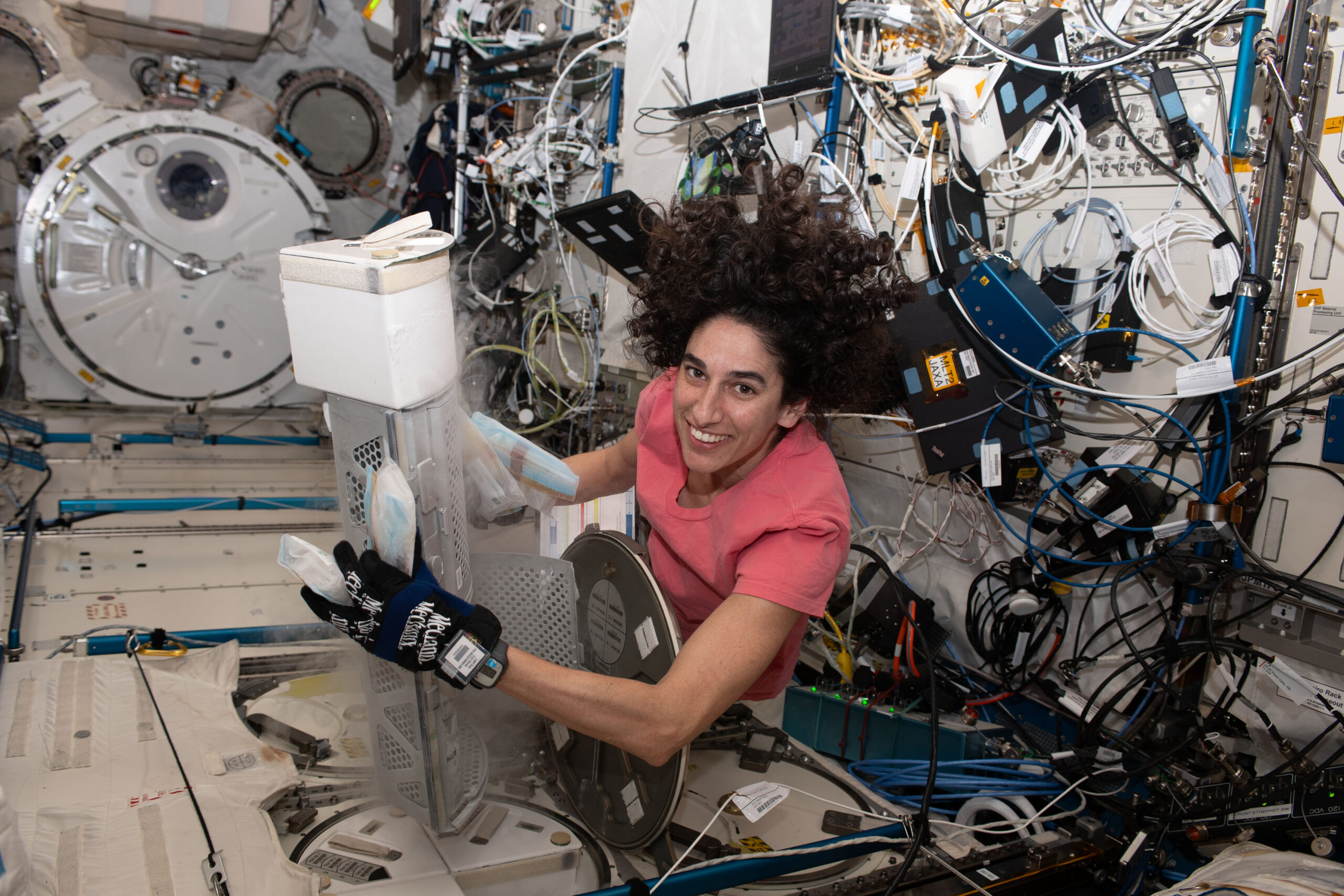
NASA and its partners have supported humans continuously living and working in space since November 2000. A truly global endeavor, the International Space Station has been visited by more than 290 people from 26 countries and a variety of…
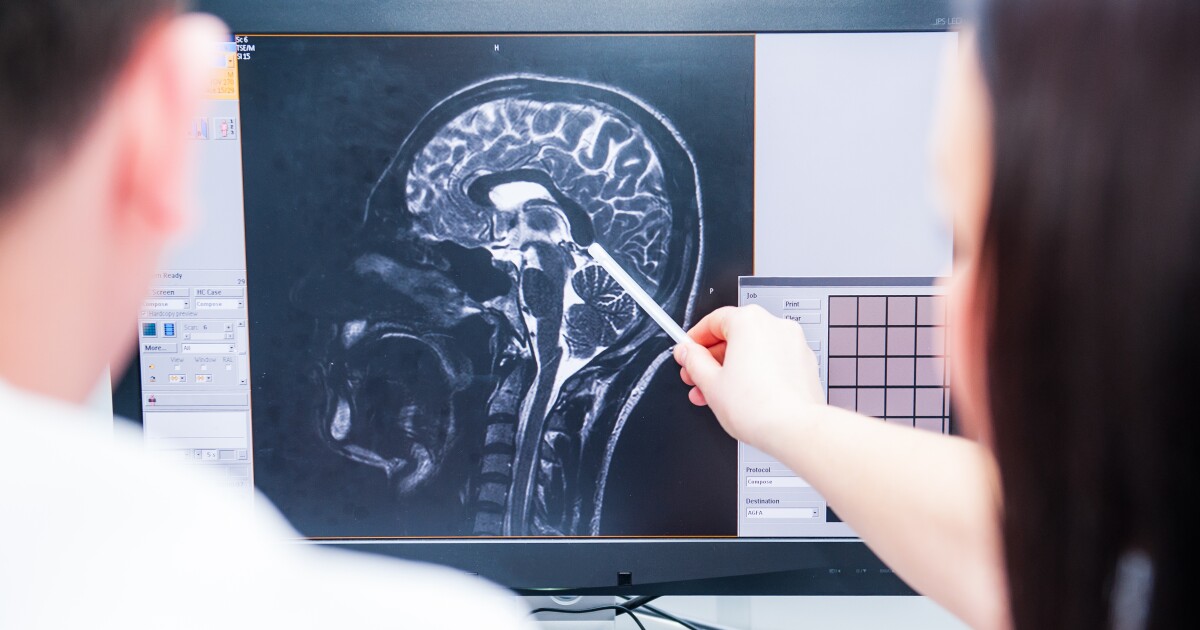
New research from the University of Virginia has found mild head injuries can increase the risk of Alzheimer’s disease later in life – but scientists say acting quickly after injury may help reduce the…

